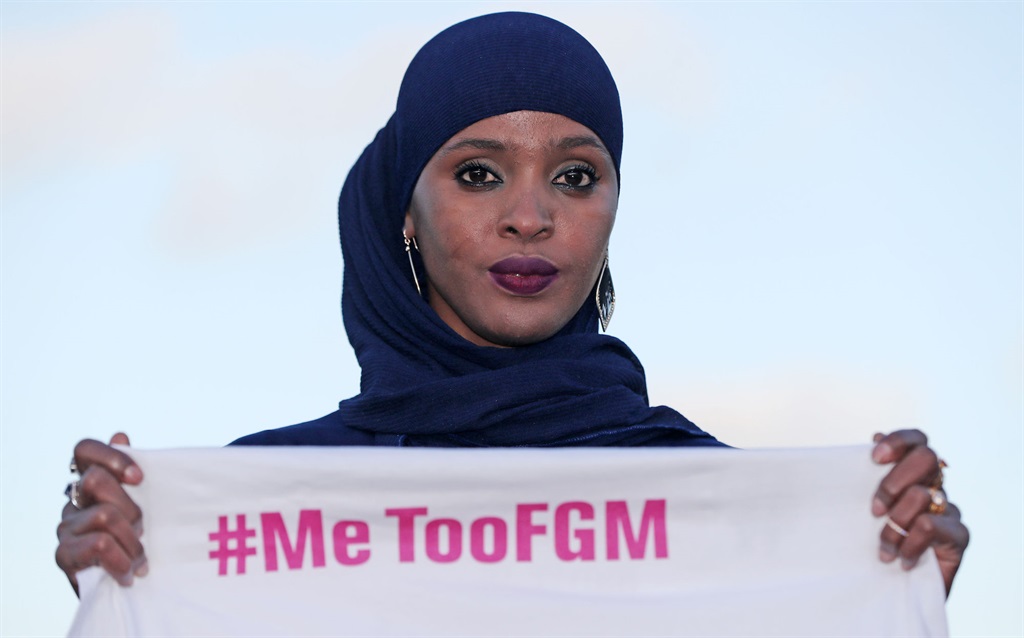
- Small fines for three women guilty of female genital mutilation (FGM) in the Gambia sparked a public debate.
- Rights groups fear it is moving towards the effective legalisation of the practice.
- Unicef says 73% of women and girls aged 15 to 49 in the country have been subjected to FGM.
In August, three women were each ordered to pay a fine of 15 000 dalasis, the equivalent of about R4 300, or serve a year in jail after they were found guilty of practicing female genital mutilation (FGM) in the Gambia.
The sentence against Mba-Yasin Fatty, 95, the circumciser, Nano Jalal, and Kaddijatou Jallow, the mothers of the circumcised girls, sparked a national debate that rights groups now fear is headed towards the effective legalisation of FGM.
The three were the first to be charged under the country's Women's Amendment Act of 2015, which outlawed FGM under former president Yahya Jammeh.
In the Gambia, according to Unicef, 73% of women and girls aged 15 to 49 have been subjected to FGM.
The World Health Organisation defines FGM as a procedure that involves partial or total removal of the external female genitalia or other injury to the female genital organs for non-medical reasons. For girls and women, the practice has no health benefits and can result in extreme bleeding, urination issues, cysts, infections, difficult deliveries, and a higher risk of stillbirth.
According to the United Nations Population Fund, more than 200 million girls and women globally have undergone some form of female genital mutilation.
FGM is practiced in Eritrea, Ethiopia, Kenya, Tanzania, and Uganda, among other African countries.
Now Gambia may regress, NGOs fear, with attempts under President Adama Barrow to remove legal protections for women.
For starters, the slap-on-the-wrist sentences in August are a problem, says The Association of Non-Governmental Organisations (Tango) in The Gambia.
"We are concerned about the leniency of the sentences, as a fine of just D15 000 does not adequately reflect the crime's seriousness," they said in a statement.
"Some political and religious leaders have openly supported the convicted individuals," Tango added.
An Islamic religious leader, Imam Abdoulie Fatty, paid the fines because, he claimed, the fight against FGM was a direct attack on the existence of Islam in the Gambia.
In September, the Supreme Islamic Council issued a statement in support of FGM in the Gambia.
"The committee would like to clarify that female circumcision is not just a merely inherited custom, as falsely claimed by those who are not conversant with the Islamic Law. Rather, it is one of the virtues of Islam and among the Sunnah practices approved by the Messenger of Allah," it said.
The country has already had a parliamentary debate about the decriminalisation of FGM.
The African Commission on Human and Peoples' Rights and the African Committee of Experts on the Rights and Welfare of the Child this week issued a joint statement "to express deep concern about the current regressive Parliamentary debate advocating for the repeal of laws that prohibit FGM."
They said the reversal of the legislation was not the solution.
"Dialogue with various stakeholders, including religious and traditional leaders, is the way to uphold the rule of law," they said.
The United Nations in the Gambia also wants to see the Women's (Amendment) Act of 2015 upheld and supported further because "FGM is an infringement on the fundamental human rights of girls and women."
Abdoulie Badjie, the programs communications and advocacy officer for the UN in Gambia, said since the 2015 amendment, a lot of ground had been covered in protecting the rights and dignity of girls and women.
Part of the work had been to stand strong with survivors and support their leadership in the fight to end FGM.
But all that progress is now in danger.
"Rolling back such progress would be a setback and undermines Sustainable Development Goal 5, aiming for the global eradication of FGM by 2030," he said.The News24 Africa Desk is supported by the Hanns Seidel Foundation. The stories produced through the Africa Desk and the opinions and statements that may be contained herein do not reflect those of the Hanns Seidel Foundation.




 Publications
Publications
 Partners
Partners























